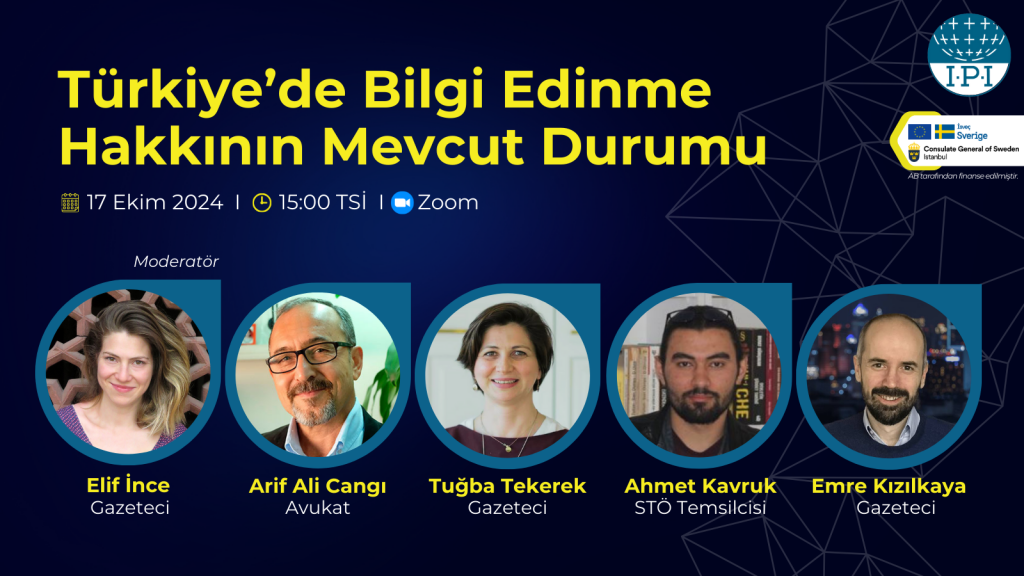The International Press Institute (IPI), the global network of editors, media executives and leading journalists for press freedom, today demanded the immediate release in Turkey of six journalists arrested following their reporting of the funeral of a Turkish national intelligence (MIT) agent who died in Libya in February.
The journalists are accused of revealing the identity of the officer despite having changed his name in the reports and despite the name already being in the public domain after it was reported in the Turkish parliament.
It is believed that the funeral reports may have caused embarrassment for the government because it revealed how the officer was buried “without ceremony” shortly after being declared a martyr.
Barış Terkoğlu and Hülya Kılınç of Odatv were arrested on March 4, followed by their editor-in-chief, Barış Pehlivan, on March 6. Ferhat Çelik and Aydın Keser of Yeni Yaşam newspaper and Murat Ağırel of Yeniçağ newspaper were arrested in the following two days, initially released and then rearrested following an appeal by the prosecutor.
“Reporting on casualties in a conflict is always sensitive for governments, but that does not give them the right to arrest journalists and shut access to media”, Oliver Money-Kyrle, IPI Head of Europe Advocacy and Programmes said. “We call on Turkey’s authorities to immediately release the six journalists and drop all related charges.”
According to news reports, the journalists have been held in isolation and no indictments have yet been prepared.
Meanwhile, the entire Odatv website has been blocked by administrative order by the Communications Technologies Authority (BTK) following a complaint by the Ministry of Interior.
According to Hüseyin Ersöz, the lawyer for Terkoğlu, this is a clear violation of the law. “Issuing such a ban as an ‘administrative measure’ without the case prosecutor requesting it, is a clear sign of political interference”, Ersöz said.
In October 2019 the Turkish parliament passed elements of a “judicial reform package” that imposed limits on online censorship powers. The new rules still allow BTK to block URLs to specific articles with “offending content” but bar the blocking of entire news websites. The measure against Odatv is a clear breach of the law introduced to improve and protect press freedom.
Ersöz also stated that according to case law of Turkey’s Constitutional Court and Supreme Court of Cassation, information that has already been made public cannot be classified as a national secret. This is backed by European Court of Human Rights (ECtHR) rulings Görmüş and Others V. Turkey (2016) and Saygili and Karataş v. Turkey (2018), which deem the prosecution of journalists for publishing information already in the public domain as a violation of Article 10 of the Convention.
The latest reform package also introduced a line to Article 7 paragraph 2 of the anti-terror law which states that “the expression of thought in the form of criticism and that does not go beyond news reporting cannot constitute a crime”. The prosecution of the journalists for their reporting is in clear breach of the amendment to the anti-terror law.




